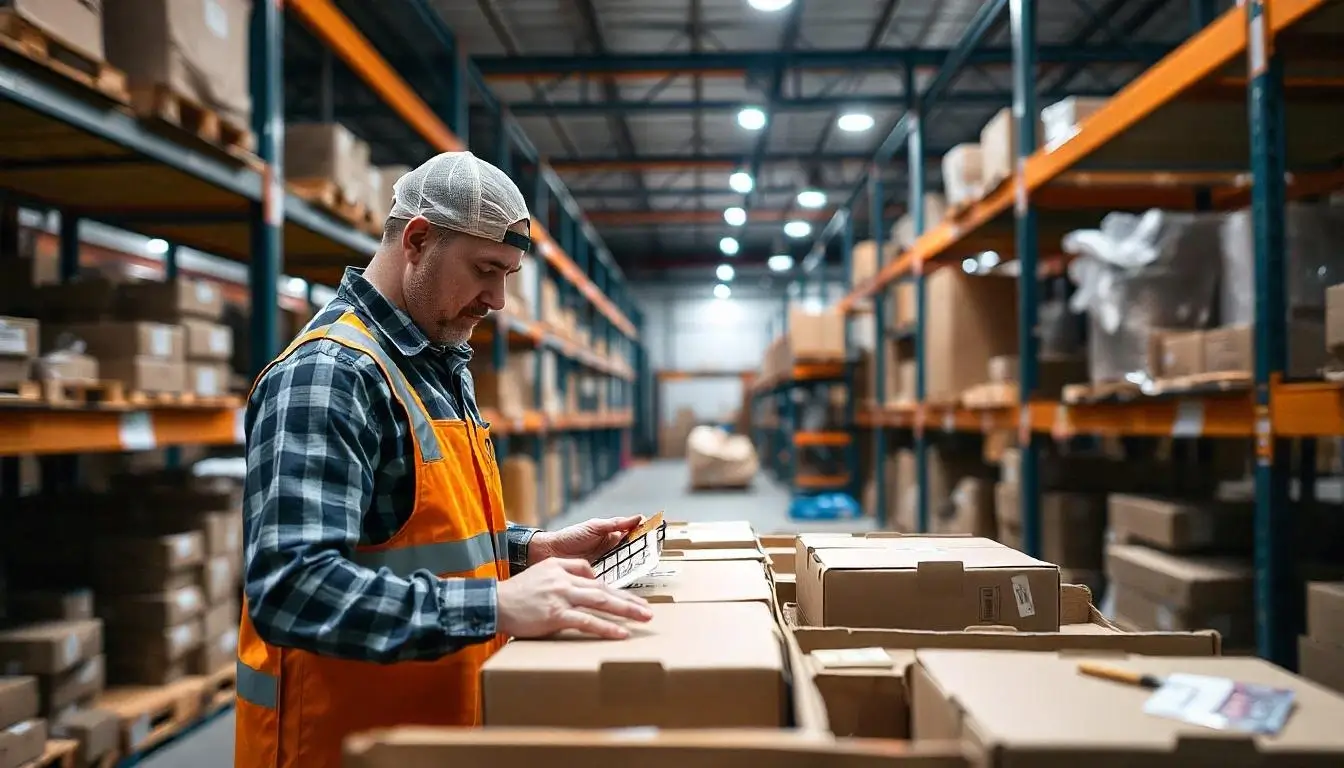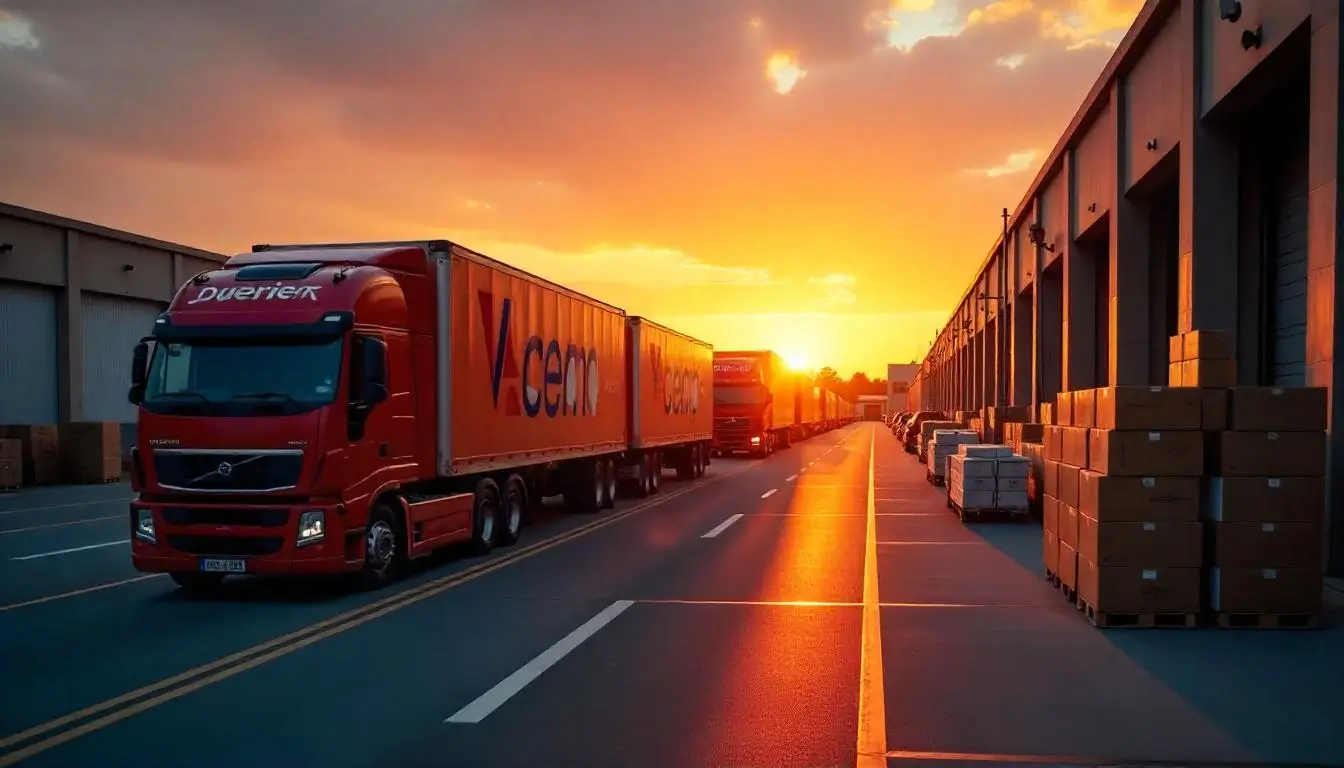Ecommerce Fulfillment Services: How to Choose the Best Solution for Your Business

Introduction
Efficient ecommerce fulfillment services are the backbone of a successful online store. Whether you’re a small business or a large enterprise, choosing the right fulfillment partner can significantly impact customer satisfaction, shipping speed, and overall profitability.
This guide will help you understand the different types of ecommerce fulfillment services, key factors to consider, and how to pick the best provider for your business needs.
What Are Ecommerce Fulfillment Services?

Ecommerce fulfillment services manage the entire order fulfillment process, from warehousing and inventory management to packing, shipping, and returns processing. The main types of fulfillment include:
- Self-Fulfillment – Businesses store, pack, and ship orders themselves.
- Third-Party Logistics (3PL) – A fulfillment company handles logistics on your behalf.
- Dropshipping – Suppliers directly ship products to customers.
- Fulfillment by Amazon (FBA) & Marketplace Fulfillment – Ecommerce platforms manage fulfillment for sellers.
Benefits of Using Ecommerce Fulfillment Services
- Faster Shipping – Fulfillment centers process orders quickly, ensuring fast delivery.
- Cost Savings – Reduces expenses related to warehousing, staffing, and shipping.
- Scalability – Businesses can handle high order volumes without logistical stress.
- Focus on Growth – Entrepreneurs can concentrate on marketing and sales rather than logistics.
Key Factors to Consider When Choosing an Ecommerce Fulfillment Service
1. Location of Fulfillment Centers
A strategically located fulfillment center ensures faster delivery and lower shipping costs. Choose providers with multiple warehouse locations to serve customers efficiently.
2. Shipping Speed & Carrier Partnerships
Customers expect fast shipping. A good fulfillment service should offer:
- Same-day or next-day processing
- Reliable carrier partnerships (UPS, FedEx, DHL, USPS, etc.)
3. Integration with Ecommerce Platforms
Ensure the fulfillment service integrates seamlessly with your ecommerce platform, such as:
- Shopify
- WooCommerce
- BigCommerce
- Amazon, eBay, Walmart
4. Transparent Pricing Structure
Look for a fulfillment provider with clear pricing, covering:
- Storage fees
- Pick-and-pack fees
- Shipping costs
- Return processing fees
5. Return Management
An effective fulfillment service should offer a streamlined return process to keep customers satisfied and reduce losses.
Best Ecommerce Fulfillment Service Providers in 2025

Here are some of the top-rated ecommerce fulfillment services available today:
1. ShipBob
- Best for small to mid-sized businesses.
- Multiple warehouses in the U.S., Canada, and Europe.
- 2-day express shipping available.
2. Amazon FBA
- Best for Amazon sellers.
- Access to Prime shipping.
- Handles storage, packing, and customer service.
3. ShipMonk
- Great for startups and subscription box businesses.
- Advanced automation and analytics.
4. Deliverr
- Best for fast and affordable fulfillment.
- 2-day and next-day shipping options.
5. Red Stag Fulfillment
- Ideal for heavy and oversized products.
- High order accuracy rates.
Steps to Choose the Right Ecommerce Fulfillment Service
- Assess Your Business Needs – Consider order volume, shipping destinations, and budget.
- Compare Fulfillment Providers – Research and compare costs, features, and customer reviews.
- Request a Demo or Free Trial – Many providers offer trials to test their services.
- Check Customer Support Quality – Reliable customer support is crucial for issue resolution.
- Evaluate Scalability – Ensure the provider can handle your business growth.
Conclusion
Choosing the right ecommerce fulfillment service is critical to your online store’s success. Consider factors such as warehouse locations, shipping speed, pricing, and integrations before making a decision. By selecting the right fulfillment partner, you can enhance customer satisfaction, reduce logistics headaches, and scale your business effectively.
Are you using a fulfillment service? Share your experiences in the comments!
Related Posts
How Electronic Commerce (E-Commerce) is Transforming Retail in 2025 Why Ecommerce Business Is the Best Startup Option Today Shopify Website Builder vs Competitors: Which One Wins? Top B2B Ecommerce Solutions for 2025: Powering Your Business Growth Top 10 eCommerce Web Design Agencies in 2025: Who’s Leading the Game?


Leave a comment